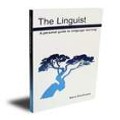The pupil is . "schooled" to confuse teaching with learning, grade advancement with education, a diploma with competence. - Ivan Illich, Educator and author, Deschooling Society (1973) By now you understand that learning does not only take place in a school. Learning is done by individuals who want to acquire knowledge from others or from the world around them. My own success as a linguist has been driven by an interest in languages and the pursuit of conviviality in the sense that Cicero meant it - enjoying the company of others because they share our lives, regardless of their country or language.
This attitude of autonomy, combined with a desire for human communication, is common to many people around the world. The world is full of potential linguists who only need to find the best way to develop their abilities. Are you one of these people?
The famous Austrian linguist and philosopher Ivan Illich proposed the creation of convivial learning webs as a substitute for the formal education system dominated by "experts." These convivial webs were to be informal communities which provided resources for independent-minded people to learn and share knowledge in a manner that was more effective than formal schooling. The Linguist language learning system (www.thelinguist.com) brings Illich's vision to life. I will use it to illustrate how language learning should be organized.
How can a convivial language learning environment work in practice? The Linguist website offers a varied and constantly growing collection of interviews with real people in different walks of life and in different languages, as well as texts on many subjects, both fiction and non-fiction. This content is in audio and text format. The audio can be downloaded and the text can be read at the website. An online dictionary and a powerful method for storing new words and phrases for regular review are built into the system. In addition, there are pronunciation and writing correction sections which are unique and practical.
Members of The Linguist can communicate with other learners and native speakers using instant messaging and email, voice-chat, video-chat or even face to face meetings. Members organize different events, with or without native speaker coaches. In this convivial learning community, it is up to the members to take the initiative. There is, however, a recommended plan of study.

